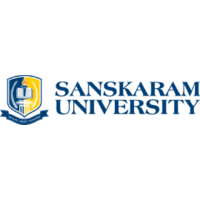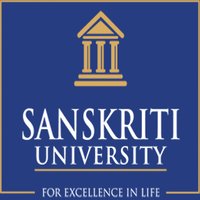BITSAT 2025
Institute of Eminence (IOE) by Govt. of India | Merit Based Scholarships | Ranked #20 by NIRF | Last Date: 18th Apr'25 | Apply Now
M.Sc. in Computer Science is a two-year post-graduate degree programme designed to build human resources with key competencies in a wide range of computer science major areas. Software engineering, system engineering, natural computation processing, mathematical principles, and machine learning are all part of the Computer Science field.
Aspirants wishing to apply for M.Sc Computer Science course must have a Bachelor’s degree in the field of Computer Science or related discipline. Candidates after completing M.Sc Computer Science can become a Teacher, Software Developer, and Network Technician. The average salary of a Software Developer in India is Rs. 8.4 LPA for a Software Developer.
Some of the top institutes offering M.Sc Computer Science courses in India are SHCTPT, IEM Kolkata, and IMS Kolkata. The admission to these institutes is either based on entrance examination or direct admission based on merit-score. Many institutes accept the score of CUET PG for admissions to the M.Sc degree programmes in various specialisations.
An MSc degree in this field aims at preparing students for careers in major industries or as entrepreneurs in comparatively small businesses. Students are given the opportunity to build and improve key competencies in computer science, which will help them enter into the highly competitive IT business.
| Particulars | Values |
|---|---|
Degree Name | M.Sc. Computer Science |
Degree Type | Postgraduate |
Degree Duration | 2 years |
Entrance Exams | CUET PG |
Eligibility Criteria | Bachelor's degree in Computer Science from any recognised university. B.Sc. Computer Science is preferred in some colleges. |
Admission process | Entrance Examination/ Direct Admission |
Fees for the entire duration | Rs. 1,750 to Rs. 3.89 Lakhs |
Average Salary | Rs. 8.5 LPA (Software Engineer) |
Job profiles | Teacher, Software Development, Computer Hardware Engineer, and Network Technician |
Top recruiters | TCS, IBM, Accenture, Infosys, Cognizant, and Siemens |
Candidates interested in appearing for the M.Sc Computer Science must meet the eligibility requirements of the course. Students need to complete their Bachelor’s degree in the field of Computer Science such as B.Sc Computer Science or other related degree with a valid aggregate score of 50 per cent or they can check the website of the institute to find the required percentage.
Varying colleges have different entrance requirements for the M.Sc. Computer Science degree. Many colleges admit students based on their entrance exam and bachelor's degree results. Some universities will admit students based on their entrance exam performance. Candidates must also clear relevant entrance examinations such as CUET PG and score a valid cut-off specified by the institute.
Admission to various universities and colleges is determined by a candidate's success on relevant entrance examinations. The M.Sc. Computer Science entrance examinations are listed below.
CUET PG: Common University Entrance Test PG popularly known as CUET PG is a national-level entrance examination for various postgraduate degree programmes. The exam is conducted by the National-Testing Agency (NTA). The exam is conducted in Online mode and in languages such as English and Hindi.
The M.Sc. Computer Science cut-offs evaluate an applicant's performance or entrance exam scores. Cut-offs for M.Sc. Computer Science is also determined by the number of students that register for the qualifying exam. The increased number of applicants suggests that the cutoff will be high.
Candidates interested in pursuing an M.Sc Computer Science course must have certain skills to benefit from the course. These skills will come in handy in their future careers as well as in their academic journey. Listed below are some of the important skills that are required for an M.Sc Computer Science course.
The M.Sc. Computer Science syllabus differs among colleges. Those interested in learning more about Computer Science and application can enrol in an M.Sc. Computer Science programme in any of India's prestigious universities or colleges. We've covered the semester-wise syllabus of MAKAUT for their M.Sc Computer Science course.
Semester- I | |
Theory | |
Principles of Programming Languages | Advanced DBMS |
Information Systems & Software Engineering | Discrete Mathematics & Numerical Methods |
Corporate Culture & Communication | - |
Practical | |
Programming Lab (C ) | Advanced DBMS Lab |
Semester- II | |
Theory | |
Object Oriented Analysis & Design | Data Structure and Analysis of Algorithm |
Advanced Computer Architecture | Data Communication & Networking |
Practical | |
Object Oriented Programming Lab (using Java) | Data Structure Lab |
Microprocessor and VHDL/Verilog Lab | - |
Semester- III | |
Theory | |
Operation Research | Advanced Operating System |
Artificial Intelligence | Elective – 1 |
Practical | |
OR Lab | OS Lab (Unix) |
Industrial Training | Seminar |
Semester-IV | |
Theory | |
Elective – 2 | Elective – 3 |
Practical | |
Dissertation | Elective – 3 Lab |
Viva Voce | - |
Elective Theory Papers for Semesters III and IV | |
Embedded Systems | Image Processing |
Automata and Natural Language Processing | Cloud Computing |
Mobile Computing | Network Security |
Data Warehousing and Mining | Soft Computing |
Social Network Analysis | - |
Elective Practical Lab for Semester-IV | |
Data Warehousing and Mining Lab | Soft Computing Lab |
Social Network Analysis Lab | - |
The cost of a Master of Science in Computer Science is mostly decided by the college where you enrol. Every college has its own tuition structure that is determined by the institution's management. Tuition at private institutions may also be higher than at public universities. The average course fee ranges from Rs. 1,750 to Rs. 3.89 Lakhs, depending on the institute.
M.Sc. Computer Science degree offers technical and non-technical abilities, ranging from leadership to coding, that is greatly appreciated by organisations and because of the expanding scope of computer science, students have a variety of opportunities in a number of highly specialised fields.
The demand for M.Sc. Computer Science graduates are growing in accordance with the development of the IT sector and the need for professionals in the fields of AI, data science, and machine learning. Graduates of computer science are in high demand in a variety of industries, including IT firms, business organisations, academic institutions, and design companies.
Students with an M.Sc. in Computer Science degree have a wide range of work options. The industry is growing at a quick pace as the range of options expands. There is an ongoing need for skilled persons to serve in academia as Computer Science professors or lecturers. The following are some of the possible job paths:
Teacher: A teacher is a professional who uses academic research to educate students.Students learn through a structured curriculum that incorporates a variety of subjects and activities with the guidance of teachers. By providing appropriate training and moral values during the early stages of education and development, a teacher can play a crucial role in shaping a nation's destiny.
Software Developer: Software developers help with system repairs and maintenance to ensure that any potential threats are resolved and that the system is compatible with new databases. They also create programmes that allow individuals to perform certain tasks on a computer or mobile device, while others create the underlying technologies that manage networks.
Computer Hardware Engineer: Computer hardware engineers assess customer requirements and make recommendations for effective hardware. They're in charge of the technical analysis of high-priority media content. To analyse, develop, build, and test computer systems and equipment, computer hardware engineers work with integrated circuits, microprocessors, storage systems, networking, and adapters.
Network Technician: Network technicians are in charge of a company's network system. They also address customer problems and upgrade and oversee, debug, and monitor LAN and WAN usage as well as configure and operate an institution's internet, intranets, and extranets. Antivirus software is also used to protect the computer network from cyber-attacks.
A Master of Science in Computer Science is a great specialisation for the modern world. The salary after an M.Sc Computer Science course depends on different factors such as the location of the company, skills and experiences of the candidates, level of education, and the job profile applied by the candidate.
| Job Profiles | Salary |
|---|---|
Software Engineer | Rs. 8.5 LPA |
Software Developer | Rs. 8.4 LPA |
Computer Hardware Engineer | Rs. 2.3 LPA |
| Network Technician | Rs. 5.3 LPA |
Source: AmbitionBox
Many companies offer numerous computer-related disciplines and are built with Computer Science as a base. There are various job opportunities available for the students. Obtaining a master’s degree in Computer Science such as M.Sc Computer Science will boost the candidate’s employment options. Some of the specialisations offered are Data Science, Computer Languages, and Cyber Security.
Several educational institutes in India offer M.Sc. Computer Science programmes. Prior academic achievements and admission test scores are used to determine admission. In the table below, we have mentioned the top 10 M.Sc Computer Science Colleges in India along with their fees.
| Colleges | Fees |
|---|---|
Rs. 1.10 Lakhs | |
Rs. 52,400 | |
Rs. 3.89 Lakhs | |
Rs. 2 Lakhs | |
Rs. 1.20 Lakhs | |
Rs. 44,350 | |
Rs. 60,000 | |
Rs. 1,750 | |
Vaugh Institute of Agricultural Engineering and Technology, Allahabad | Rs. 1.04 Lakhs |
Rs. 91,700 |
M.Sc. Computer Science courses are available in several private colleges in India. Private colleges are far more expensive than government colleges. Some of the top private colleges offering M.Sc. Computer Science courses are mentioned in the following table.
| Colleges | Fees |
|---|---|
NERIM Guwahati | Rs. 1.10 Lakhs |
BSSS Bhopal | Rs. 52,400 |
WCC Chennai | Rs. 3.89 Lakhs |
KJC Bangalore | Rs. 2 Lakhs |
KMV Jalandhar | Rs. 1.20 Lakhs |
Government-run colleges have lower tuition prices than private colleges. These colleges are well-known in India for their high educational standards. Some of the greatest government colleges that provide M.Sc. Computer Science is listed below:
| Colleges | Fees |
|---|---|
IET Agra | Rs. 44,350 |
MPC Baripada | Rs. 60,000 |
Jawaharlal Nehru Rajkeeya Mahavidyalaya, Port Blair | Rs. 1,750 |
Vaugh Institute of Agricultural Engineering and Technology, Allahabad | Rs. 1.04 Lakhs |
BUSS Batala | Rs. 91,700 |
M.Sc Computer Science provides the students with advanced knowledge in the field of Computer Science. Some of the top career options in the field of M.Sc Computer Science are Software Developer, Software Engineer, and Network Technician. Candidates can choose the career based on their interests and future goals and aspirations.
Some of the topics included in a Master's degree in Computer Science are Discrete Mathematics, Computer Systems Verification, Programming Languages, Basic Programming Laboratory, Mathematical Logic, Distributed Systems, Theory of Computation, Design and Analysis of Algorithms.
MSc courses are a good postgraduate degree that students opt for after completing their BSc. It is both shorter and far less costly than MCA programmes. In addition, MSc students are given an additional year to prepare for several admission tests.
For most students, studying the discipline of Computer Science is a challenging and time-consuming process. Most students can study the discipline and have successful careers in Computer Science fields if they are ready to devote the time and learn strong time management skills.
A Master of Science in Computer Science is a postgraduate degree that is given upon completion of the course.
There are various career options after M.Sc. Computer Science degree. Some of the careers are Teacher, Software Developer, Computer Hardware Engineer, Network Technician, Computer Programmer.
Some of the top colleges which offer M.Sc. Computer Science degrees are LPU Jalandhar - Lovely Professional University, MSU Baroda - Maharaja Sayajirao University of Baroda, Christ University, Bangalore, BHU Varanasi - Banaras Hindu University, Jamia Hamdard, New Delhi, NIT Trichy - National Institute of Technology Tiruchirappalli.
Students have a lot of options after completing M.Sc. Computer Science degree. They can pursue M.Phil in Computer Science, PhD in Computer Science, PhD in Computer Science and Applications, PhD in Computer and Information Science, M.Tech in Computer Science, MCA, MBA.
In order to understand subjects and improve their learning experience, students must have a number of specific skills. Communication Skills, Technical Skills, Numerical Skills, Critical Thinking, Computer Skills, Software and Hardware Skills are the skills that are needed.
Some of the top organisations that hire M.Sc. Computer Science graduates include TCS, IBM, Accenture, Infosys, Cognizant, Siemens, Delhi University, IIT, Delhi, Banaras Hindu University, Christ University, Bangalore.
The M.Sc. Computer Science is a two-year programme with four semesters.
.
Here is a fees structure for MSc in Biotech, with India’s top tier Colleges.
Average Fees:
Fees in Government Colleges:
Fees in Private Colleges:
Other Factors Affecting Fees:
You can check the desired college fees structure through their official website or by visiting the admission office.
Hope it helps !
Colleges in India that offer an M.Sc. in Nuclear Medicine or related postgraduate degrees in Nuclear Medicine Technology.
Top Colleges Offering M.Sc. Nuclear Medicine/Technology:
Important Considerations:
Recommendation:
You should visit the official website of your desired College or you can directly contact the admission office for further details.
Hope this helps !
Hello there,
Yes, IISc Bangalore offers admission to its
4-year B.Sc. (Research)
program through the
IISER Aptitude Test (IAT)
, but
not
a direct 5-year B.Sc.-M.Sc. integrated course via IAT.
Key Points:
Program Offered
: 4-year B.Sc. (Research) with option to extend for 1-year M.Sc.
Admission via IAT
: Apply for IAT and also separately on
IISc admission portal
.
Course Structure
: First 3 semesters - common subjects, later specialization and research projects.
Eligibility for M.Sc. Extension : Based on academic performance during B.Sc.
Note
: IISc application opens from May 1 to June 6, 2025.
I hope this answer helps you. If you have more queries, then feel free to share your questions with us, we will be happy to assist you.
Thank you, and I wish you all the best in your bright future.
Hi navitha
In Kharar, Punjab, MSc students typically have hostel options at Panjab University and Chandigarh University. These hostels offer various room types, with fees ranging from Rs. 106,800 to Rs. 168,000 per annum for non-AC rooms and Rs. 1746 to Rs. 2880 for AC rooms.
Thanks.

MSc Finance and MSc International Management Admissions 2025 Now Open | Ranked Among the Top 100 Universities in the World by QS World University Rankings 2025 | Last Date: 28th Apr'25

100+ Industry collaborations | 10+ Years of legacy

Best innovation and research-driven university of Uttar Pradesh
Approved by UGC | Robust Placement Assistance
NAAC A Grade | Trans-Disciplinary Approach | Global Diversity
MAHE Ranked No. 1 Private University in India by QS World | #4 in India by NIRF 2024